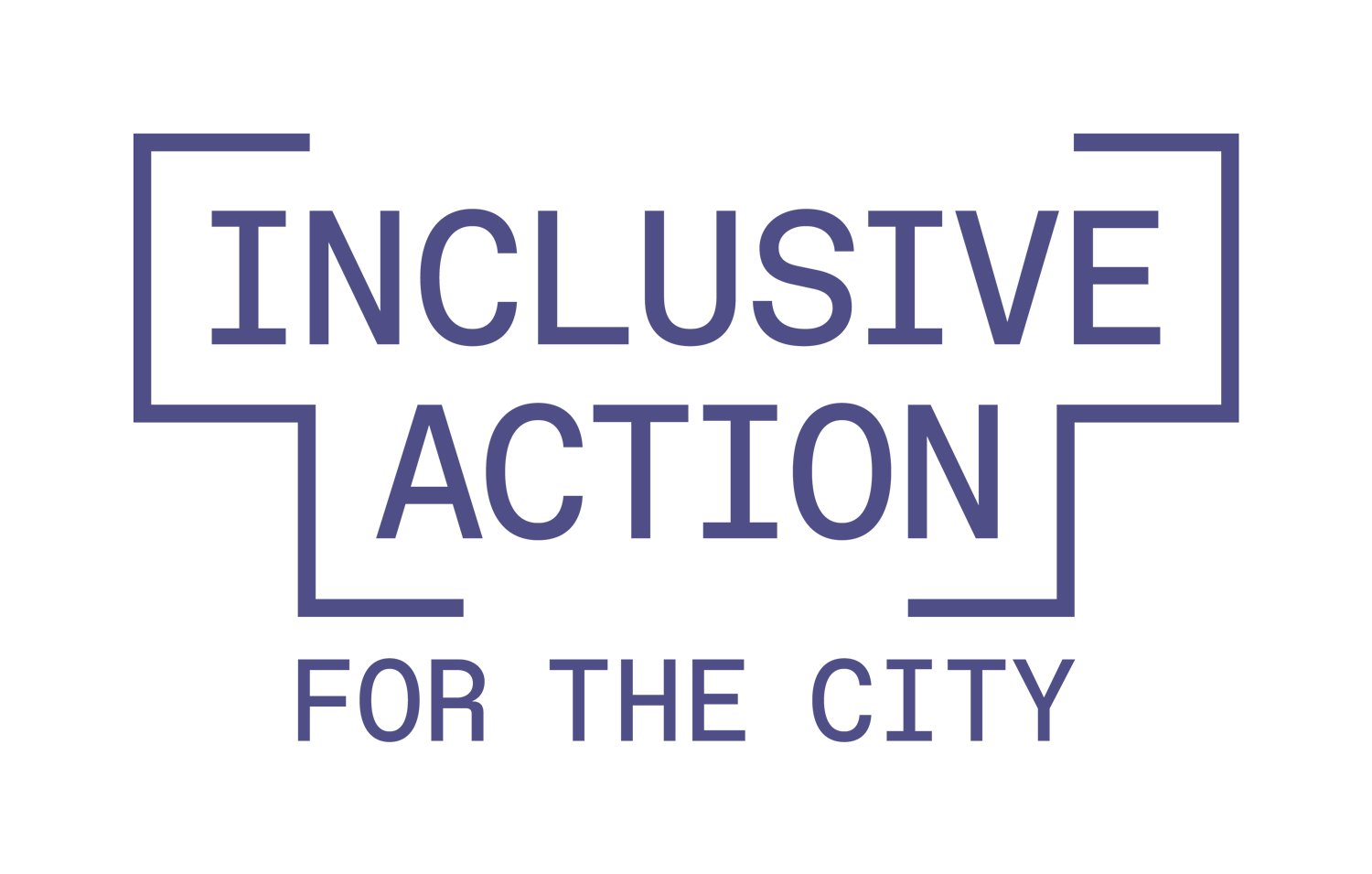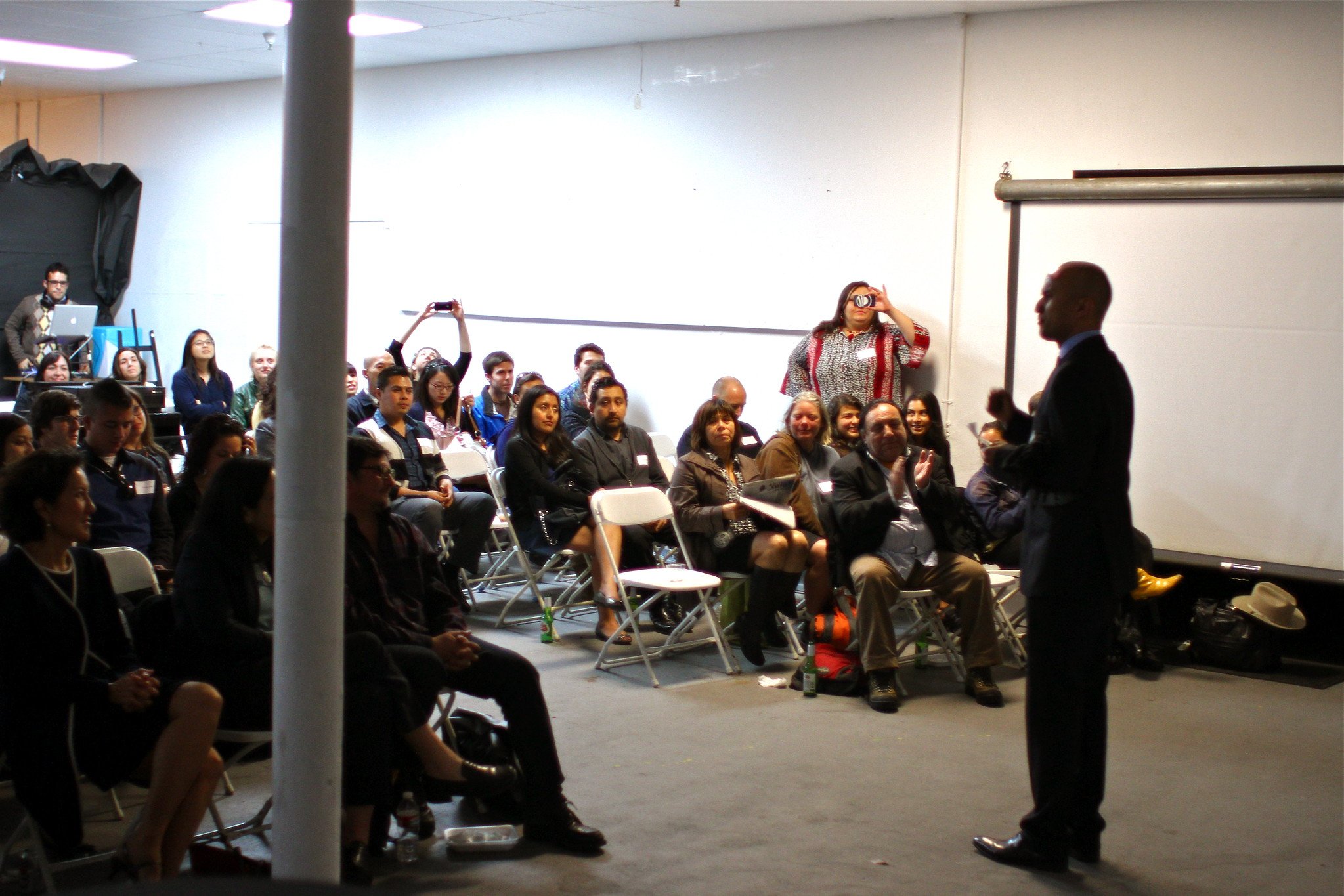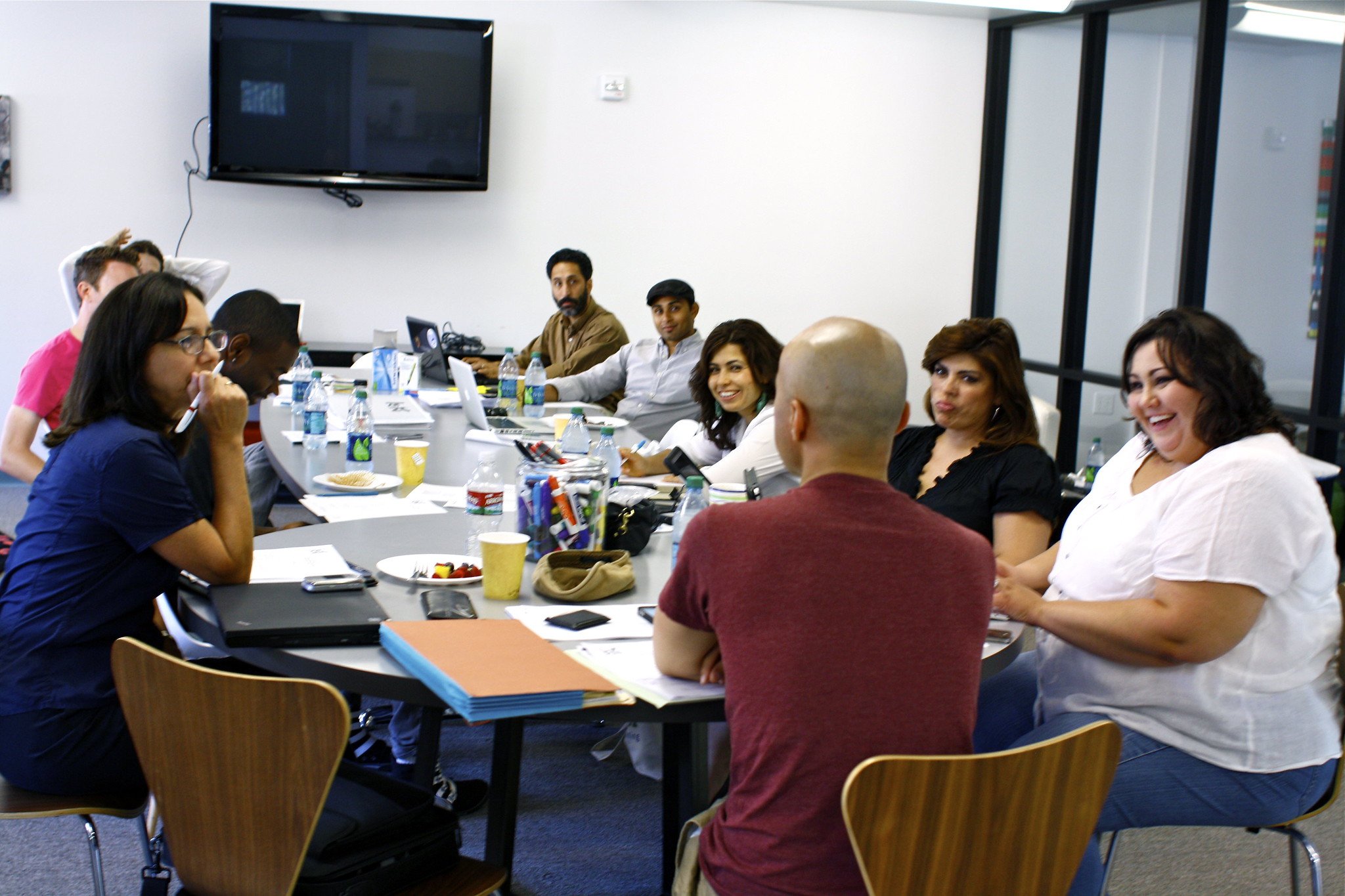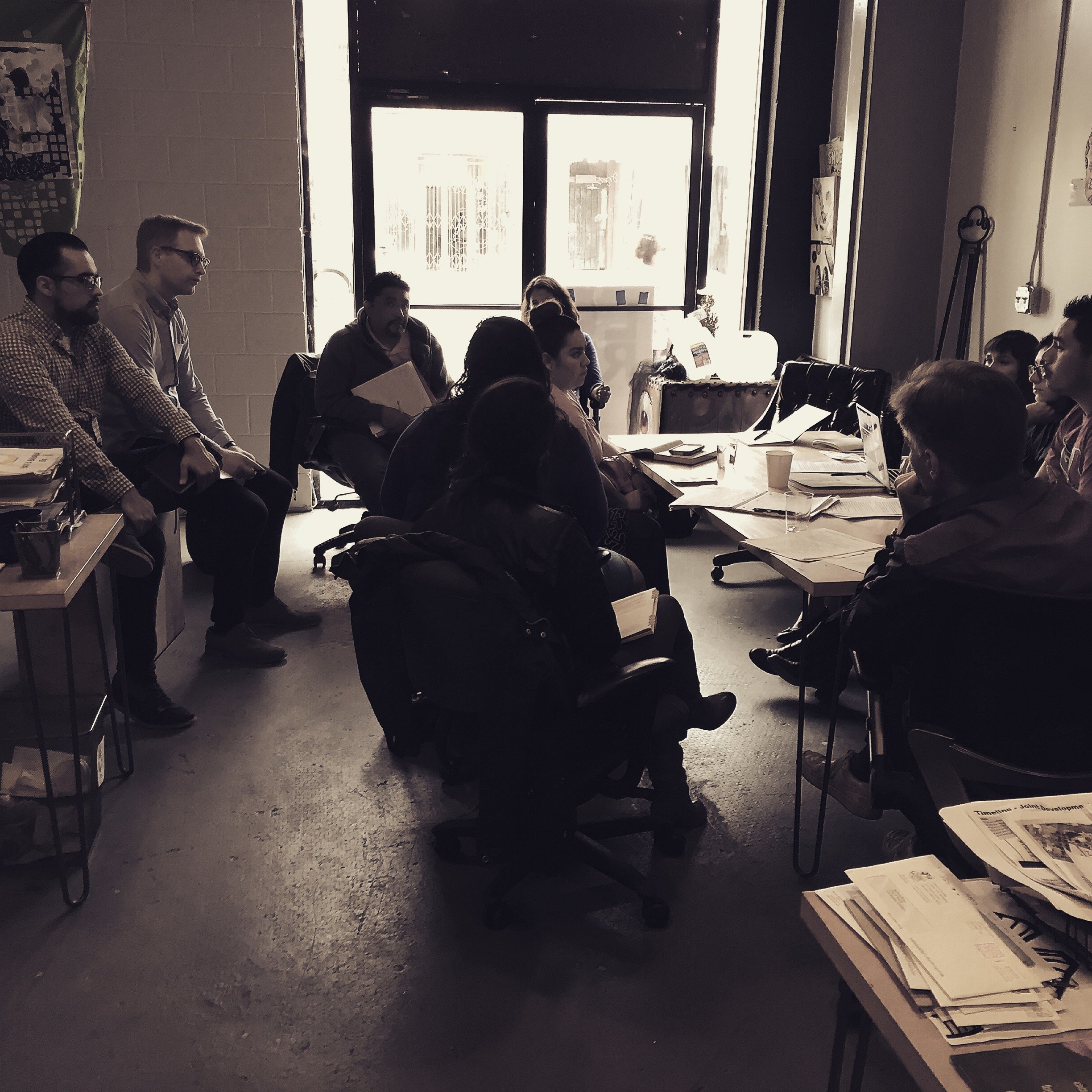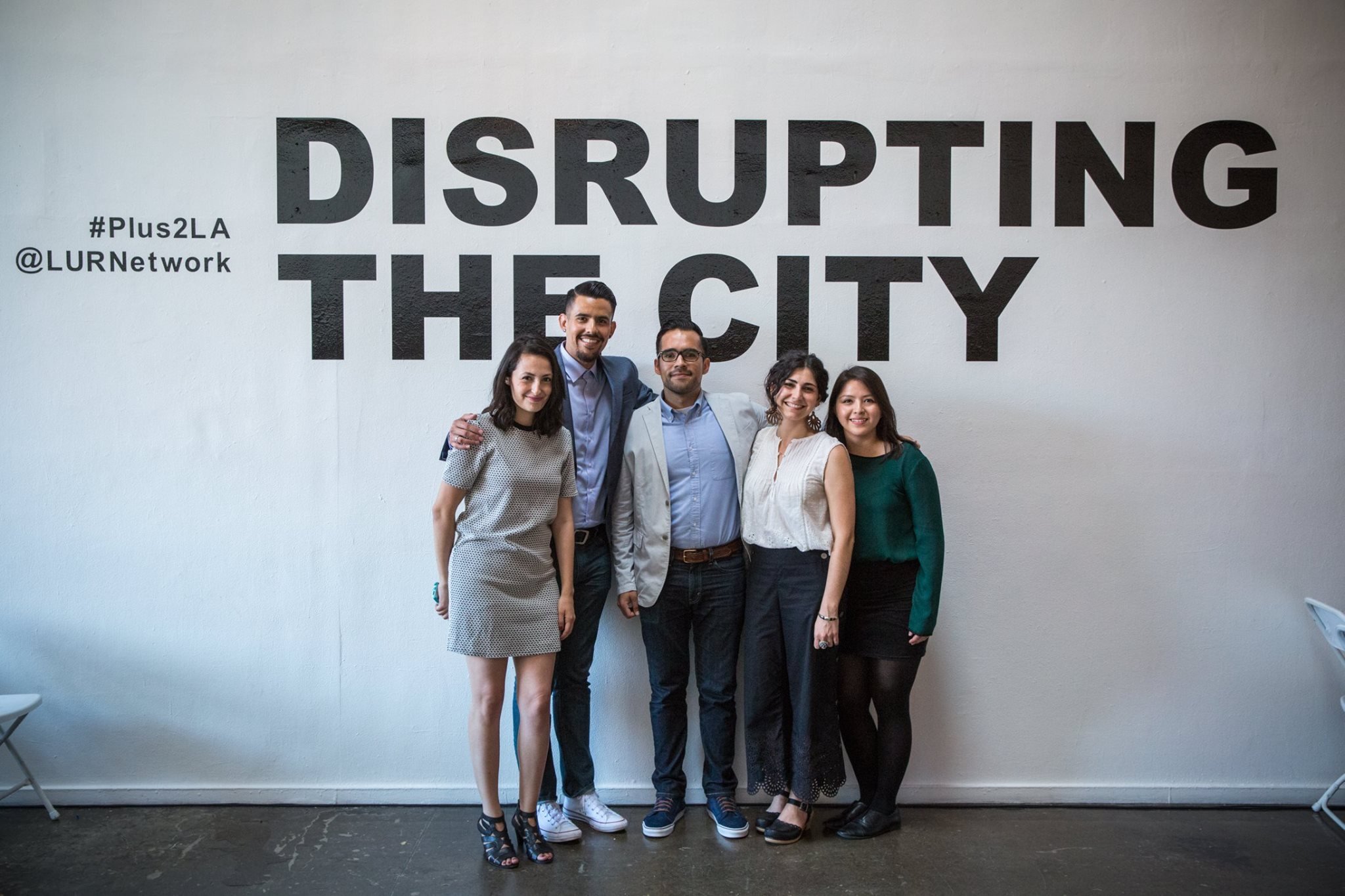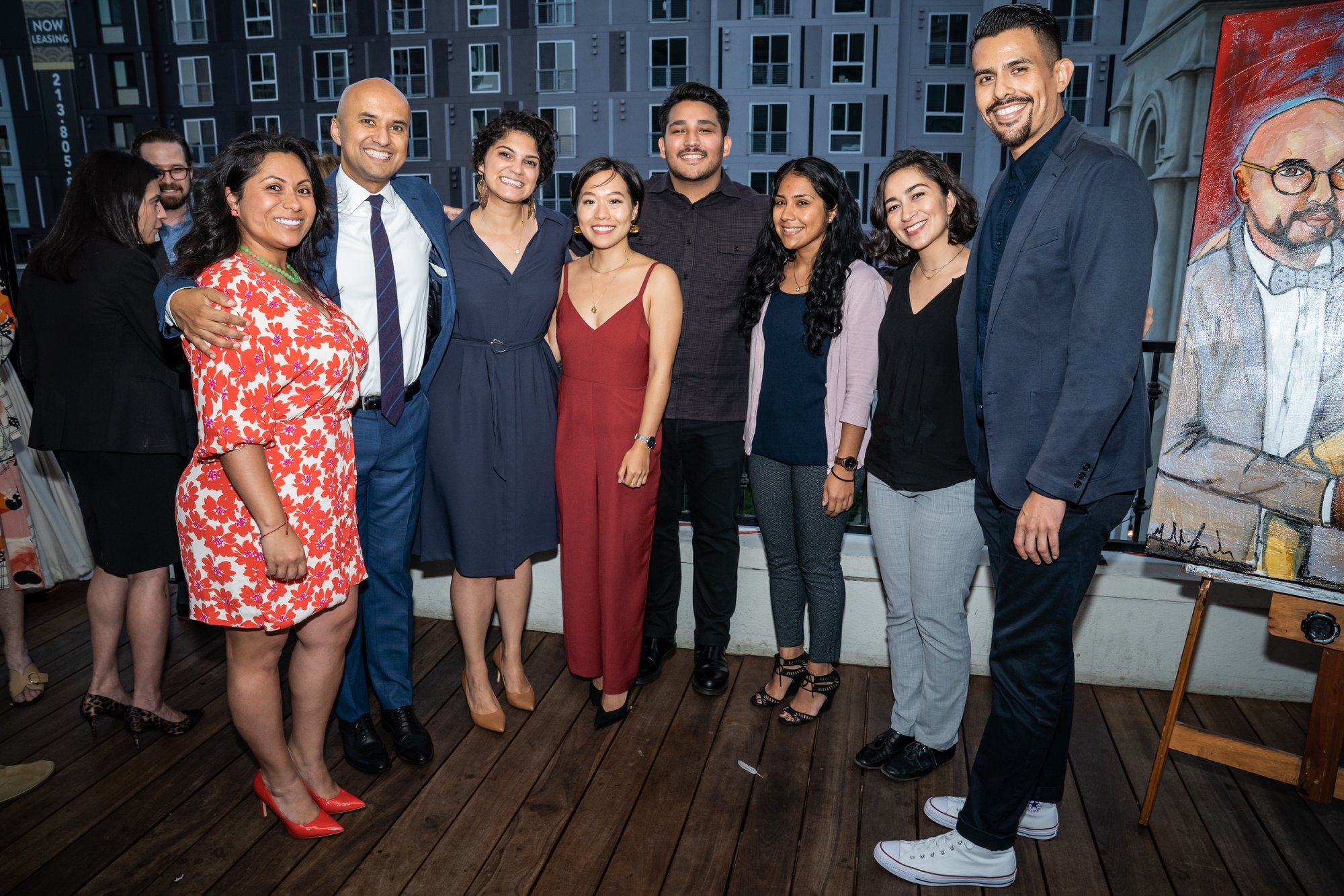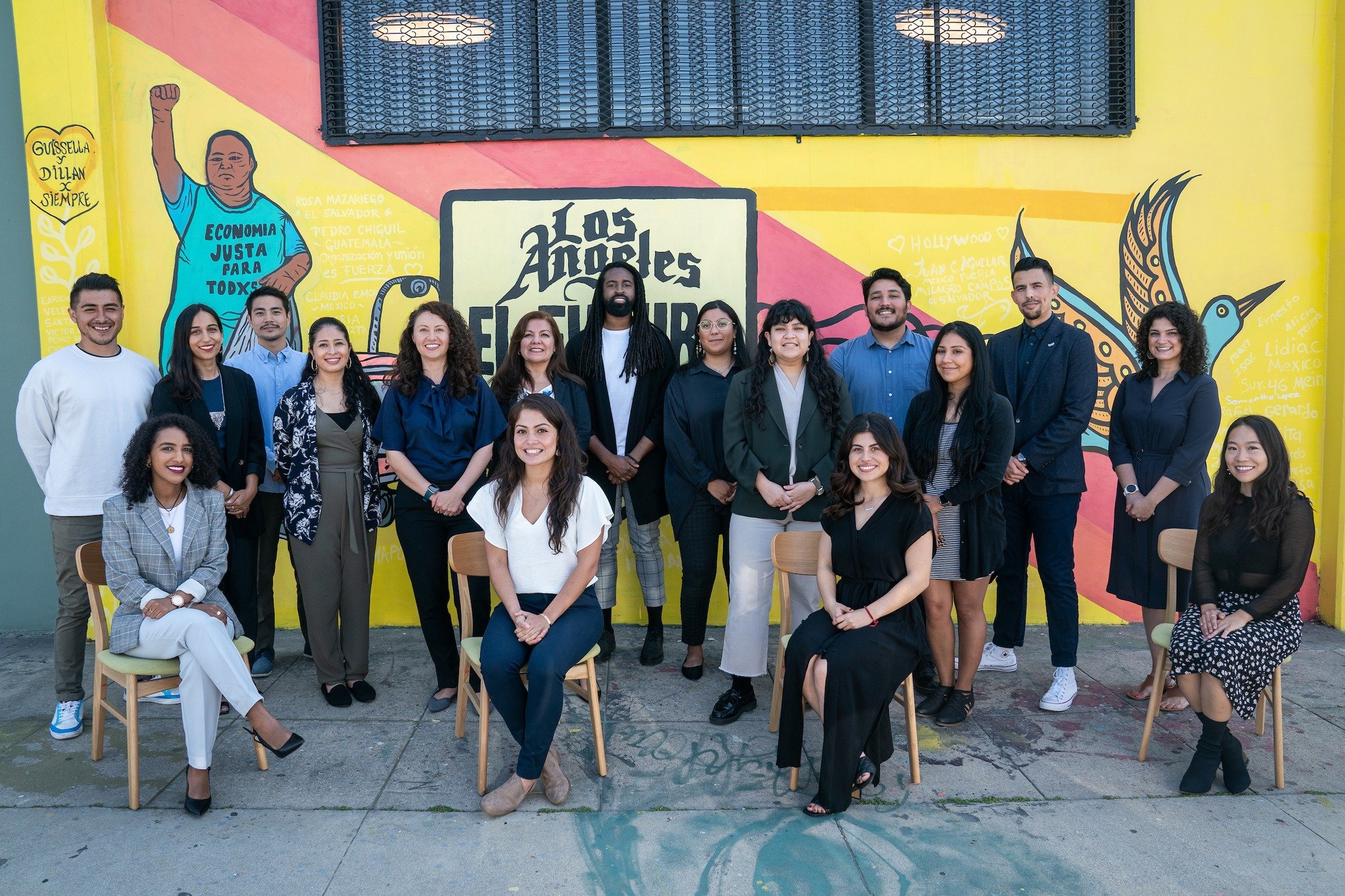Reflecting on 10 Years of Service at Inclusive Action
By Rudy Espinoza, Executive Director
10 years ago I began my journey as Executive Director of Inclusive Action (then called LURN).
I remember my Mom wondering why I left my last gig (a CDFI in South Los Angeles); “Don’t they pay you?,” she asked, clearly wondering why I would leave a stable job.
Something was calling me to the organization where I served as a board member and which a former boss called “my book club.” Back then, we were a volunteer-driven non-profit, catalyzed by the dynamic land-use attorney, Alfred Fraijo, and a group of do-gooders from the fields of housing, education, urban planning, and more. The vision was ambitious: bring people together to reimagine community development and change the planning and economic systems that were leaving so many low-income Angelenos behind.
In my first year of employment, I simply had my personal laptop, a very supportive Board of Directors, and 2 months of “runway” in our bank account. Since philanthropy doesn’t usually invest in “new” organizations, I knew there was a big chance that we wouldn’t be able to raise funds right away, so I left my apartment in Eagle Rock, and moved into a Board Member’s spare bedroom in Boyle Heights. (I will forever be grateful to Monique Chavoya for this!)
This first year was one of the most exciting chapters of my career. It was a time that I had been pondering for years before, but hadn’t had the courage to jump into. I logged 12 hour work days, that were so invigorating that “Sunday Scaries” were non-existent, as I woke up everyday ready to build an organization that serves Angelenos.
It was a time of hyper-collaboration and abundant possibility. My charge was to formalize the ideas we were generating, and raise resources to implement them. At that time, we hadn’t quite secured a Councilmember to champion our effort to legalize street vending, our vision for capital deployment consisted of some sketches between Alfred and I at a bar (some of the initial ideas included low-interest loans for undocumented students!), and the organization’s profile was largely limited to networking events. We were very small, but we loved our work and our city. We weren’t afraid to roll up our sleeves and try new things.
Over the last 10 years, we’ve done a lot of important work. We helped legalize street vending in Los Angeles through two statewide bills, we joined forces with inspiring organizations to advocate for small businesses and workers, we’ve designed a justice-seeking micro-loan fund that has deployed over $2,400,000 in micro-loans and another $2,000,000 in cash grants to street vendors, brick-and-mortar businesses and other hard working visionaries in our communities. This work earned a CDFI certification! We even purchased five commercial buildings in a wild experiment to preserve small businesses in communities. And we’ve played a leadership role in so many other efforts that support creative land-use and economic development in Los Angeles.
While I don’t measure success by the amount of team members on a roster, it is notable that we are no longer a team of 1, but a collection of 22, sophisticated change agents who care about economic justice and our communities. Our staff is a major element of our success, our team, past and present, are so exceptional that one begins to miss them when you go on vacation. Can everyone say that about their colleagues?
Last summer, Inclusive Action hosted a 3 day staff retreat in the Sierra Mountains. Lyric, who knows our humble beginnings, asked me “how does it feel to see all these faces here? Do you feel proud of the growth and everything you accomplished?”
I am proud. And, I’m feeling very focused on the future. The role that I took on 10 years ago has changed dramatically. Inclusive Action is no longer a start-up organization that can (or should) bootstrap everything. As we’ve earned the trust of our partners and community members, we’ve been able to enter new doors to unlock resources and political power for our communities. But this success brings with it more responsibility and more expectations for us as leaders.
The challenge before us now is how do we shepherd a growing, sophisticated organization, stay focused on growing our impact, and also maintain the dynamism of the organization’s early years?
How do we build systems that position us to responsibly leverage complicated federal grants, for example, while simultaneously pushing up against these very systems that make resources unattainable for our communities? How do we support the “sustainability” of the work, while also “rolling the dice” on strategic opportunities that can have a huge impact? As a leader, how do I create spaces for my team members and partners to come along for the ride, and guide those who may want to play a different role?
In the two weeks before for my first official day of employment, I stepped off the organization’s Board and was working hard to set up systems for an organization that would hire me as its first employee - one of these systems was payroll. I was nervous about finances. With only 2 months worth of resources in our bank account, I suggested to our Board Treasurer, Ginger Hitzke, that instead of setting me up as a salaried employee which would incur the organization extra taxes, perhaps I should be hired as an independent contractor; in this way, I could stretch our 2 months of funds into 4 to 5 months. She said, “No. You’re setting up payroll, and you’re going to be a full-time employee from the beginning. We’re going all in. Let’s go!”
I’ll always remember her gumption, and the inspiring ambition of our founders. I’ll always remember the courage that Luis Gutierrez (our second team member) had, when he quit his very stable and secure job to come work for us. (Luis said: So, Rudy, where will we work? Me: We don’t have an office, so we’ll have to coordinate everyday to meet at coffee shops!) I’ll always think of Natalie (our 3rd team member), who entered our first office for an interview (a dark and dingy office on 1st street) with excitement and wide eyes saying: “I’d love to work here.”
This spirit is what changes the world. I’m still hungry to get our communities closer to economic justice. We just released a three-year strategic plan that guides the growth of our lending and policy advocacy, while establishing a new division to expand our real estate work and other experiments. Our growing team is AMAZING (insert crying emoji) and as our communities face calamity after calamity, we recognize that we have a unique opportunity to use our expertise and privilege to change the world. I’m grateful for these 10 years and I’m ready to build the future.
Let’s go!
